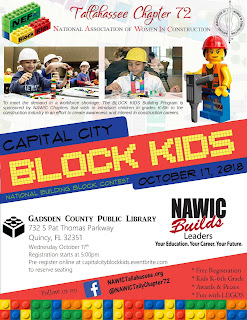from partnerships to new programs with guest blogger kris odahowski
 By Kris Odahowski, Gadsden County Public Library System, Youth Services
By Kris Odahowski, Gadsden County Public Library System, Youth Services
The McGill Library Chess Club was about to begin, and the instructor was late. A new student decided to join the club, and when the instructor arrived, the student’s jaw dropped as her principal walked into the room. The student was taught to play chess by her principal at the library that afternoon.
This experience reinforced to me the power of active partnerships in the library and how they can bring totally new, unforgettable experiences to the young library user. The chess instructors are members of the alumnae chapter of a national fraternity with the goal to provide mentorship and learning opportunities to youth.
Are you ready to build new partnerships or would you like to see your partnerships develop into shared activities at your library? I want you to know there is power, growth, and benefits in shared activity program partnerships.
Monthly, I work with over 15 active partnerships. Some of these partnerships have developed over my work career and others are a part of a new effort to work with local groups, schools, and business representatives. Having these shared activity partnerships has encouraged me and supported my mission while providing new programs when funds are not available.
To grow and maintain active partnerships, there are some partnership building practices I do on a daily, weekly, and monthly basis. I try to be open to adults in the community and build new relationships. I strive to be open-minded when talking to anyone I meet through my work, and I try to suggest shared interests which may lead to a partnership. I share my contact information and business card widely so it can be shared or passed on as a referral.
Partnerships are unique, and the shared activities presented are often created through brainstorming meetings with organizations and groups. These meetings provide a time for give-and-take which helps partners and the library staff create the best activities so that everyone benefits.
Partnerships should be nurtured. Many of the partnerships require supervision of volunteers, recruitment of volunteers, and the negotiation of new goals and guidelines for volunteers. Partnerships bring many new opportunities to your library, but they take work and they demand you keep an active working relationship with those volunteering time and donating resources.
Active, unique, and nurtured partnerships can thrive in a library setting, but they demand attention to the relationships. I contact partners regularly about schedules, volunteers, and material. Sometimes I take a supervisory role with volunteers from partnering organization, but I also encourage the group to supervise their own volunteers through their own volunteer guidelines.
Both our library system and our local community have reaped the rewards of these partnerships. A recent partnership with an alumnae chapter of a fraternity provides skilled training and mentorship for students during our weekly Chess Club. Other partnerships provide free new books to students at Read Aloud programs sponsored by a local women’s organization. Professional child development trainers and providers have partnered with the library to hold child development screenings at the libraries.
These partnerships are mutually beneficial. Partnerships that produce shared activities and provide new programming and resources to the community bring a potent in-kind contribution to public libraries.
They provide the library with needed resources and strengthen services to both the community and the library. With care and dedication, you too can build programs from partnerships in your community.


Comments
Post a Comment